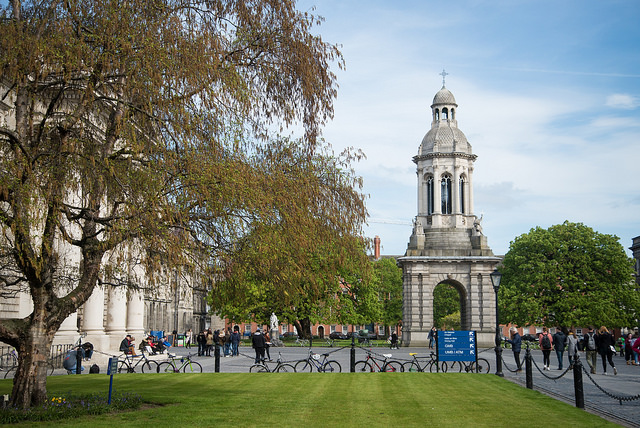Trinity has experienced a significant drop in the number of first-preference applicatons from the CAO, The University Times has learned.
The decrease in application numbers marks the first in several years and comes amid a sector-wide fall in applications to higher education institutions in Ireland.
Data from the CAO shows that the higher education sector has suffered a 4.5 per cent drop in applicants. Trinity has seen a drop of over 8 per cent in first-preference applications, making it the university with the highest rate of decrease.
Within Trinity, subjects such as history, mathematics, political science and geography have seen significant rates of decline, with concerns that similar decreases could lead to first-preference applications falling below the number of available spaces within two years. In addition to this, first-preference applications to TSM courses fell considerably, by just over 13 per cent.
First-preference applications for the new, restructured science programme were more positive, with over 600 first preferences registered for the course’s 400 places. This new programme, announced in 2016, is one of the flagship reforms of the Trinity Education Project, replacing the traditional entry route for general science.
As had already been announced by Provost Patrick Prendergast over Twitter, the most marked decline in applications to Trinity was among applicants from Northern Ireland and from the rest of the UK, with uncertainty about the fees to be charged after Brexit being raised as a potential contributing factor. By contrast, applications to Trinity from other EU countries increased significantly, by about 10 per cent.
All seven universities in Ireland experienced decreases in first-preference applications, along with Dublin Institute of Technology (DIT). After Trinity, the University of Limerick (UL), faced the biggest drop, of 7.5 per cent, while UCD saw the smallest drop in applicants, with a decrease of only 1.3 per cent. DIT, meanwhile, experienced a greater drop in applications than any of the universities.
The biggest decreases across the sector occurred in less vocationally oriented subjects, with arts, social sciences, STEM and business courses all experiencing drops in applications. Arts and social sciences saw a dip of over seven per cent – the largest decrease of any subject. There were increases, on the other hand, in applications to courses focusing on education and law.
Applicants will receive the first round of offers tomorrow morning and will begin classes on September 10th – two weeks earlier than normal due to changes to the year structure.







